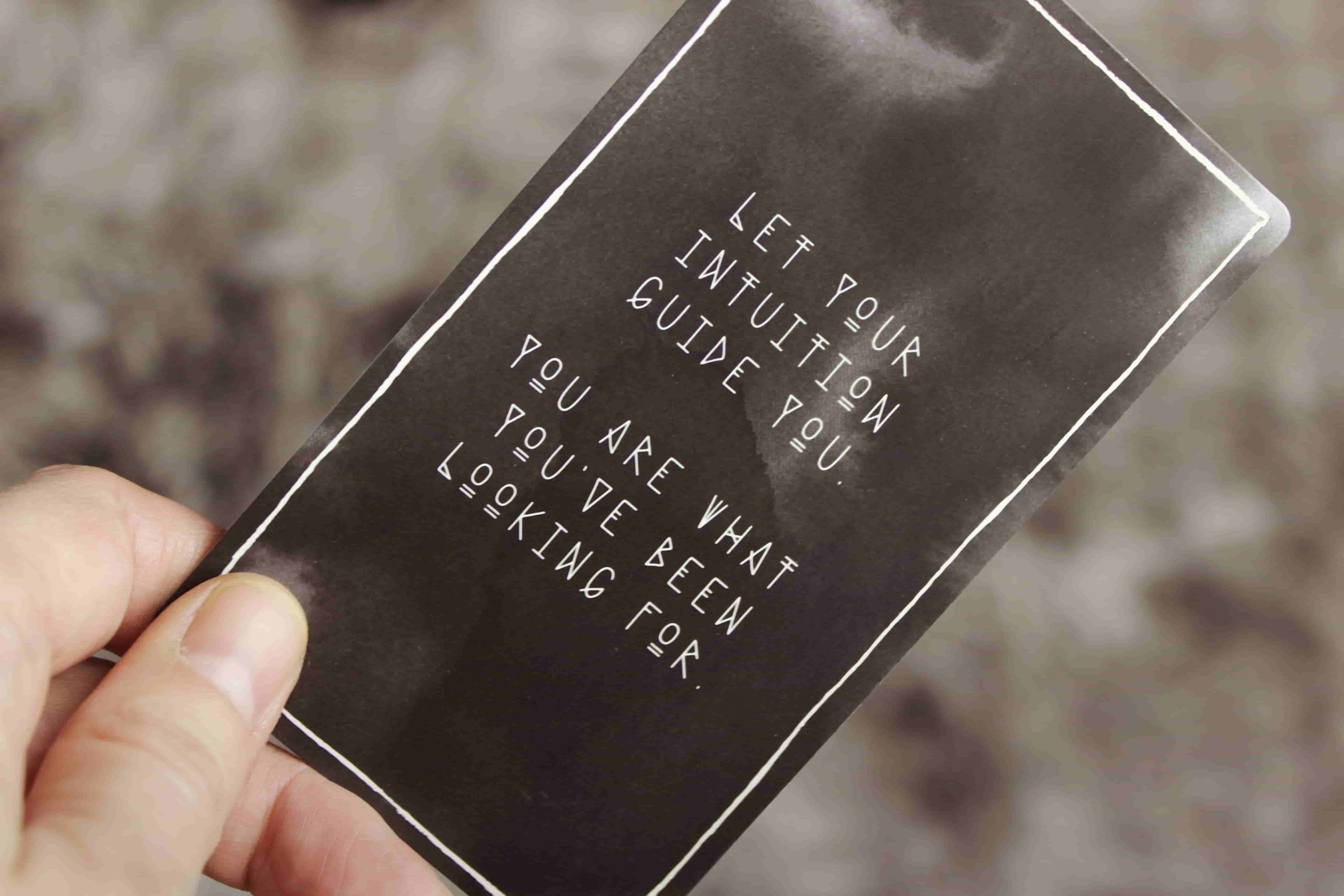Short-term stress may be good for us, but if you’re experiencing more sleepless nights than not, it could be a sign you need help managing your stress
We’ve all been there. Last-minute deadlines are looming; your boss sends an email on Friday afternoon for something that absolutely has to be done before Monday; you thought you had a handle on your budget, then something inevitably breaks down; what should have been a relaxing weekend away with your mates has turned into a nightmare of delays, missed connections, and all-around headaches.
These kinds of last-minute, unexpected stressors aren't pleasant, but at least we know they are temporary. It’s the slow-building, ongoing levels of stress that creep up over time that can become overwhelming. Answering just one more work email becomes a nightly occurrence; you find yourself keeping your work phone on you at all times – just in case; falling asleep becomes harder; soon, you realise you can’t remember the last time you didn’t feel some kind of pressure – emotionally, physically, or mentally.

If you’ve ever felt overwhelmed by stress, you aren’t alone. In 2018 it was revealed that the UK had the fifth highest number of workers reporting unmanageable levels of stress. 87% of us feel stressed, yet just one in 10 of us work somewhere that offers us wellbeing programmes.
It can be easy to tell yourself that stress is just a temporary problem, or to prioritise other things over your own wellbeing. But the longer you try to ignore your stress levels, the more these build up. Before you know it, stress can begin impacting your mental health, leading to anxiety, depression, lower self-esteem, unhealthy coping mechanisms, and more.
With so much potential to negatively impact our wellbeing, making even small changes to how you recognise, acknowledge, and face your stress can have a big impact. We share 10 simple ways you can start tackling your stress levels right now.
1. Address your work/life balance
Our jobs play an important part in our lives. Whether you work to live or live to work, what you do may give you a sense of purpose, enable you to go on adventures in your free time, or help you support your loved ones. But building your career and putting time and energy into your working life is just one part of your life as a whole.
Having a healthy work/life balance sounds easy in theory, but can be tough to master. By making sure you balance your life in and outside of work, you can give yourself more time to de-stress through socialising, building meaningful relationships, making happy memories, and giving yourself much needed time to rest and relax.
If you struggle with achieving a sustainable work/life balance, Life Coach Directory have some great suggestions to help you get started. Scheduling time into your day for not only work, but fun and rest can help you to break up the pressure, give yourself time for enriching and mentally nourishing activities, naturally building self-care and enjoyment back into your day.

Counselling Directory member and counsellor Carol Fare, shares her advice about achieving a more sustainable work/life balance: “Our brains and bodies are not designed to be always ‘on’. Without breaks and recovery periods we can notice our concentration, energy and patience being depleted.
“We've all experienced our PC running slowly or crashing because we haven't restarted it for days and we've got multiple applications running at the same time. Your brain is just the same – it needs regular restarts to be able to recharge and function at it's best.
“Everyone will have their own way of managing work outside of work. For some people it works best to only work when in the office. This means you get a complete break but may face a backlog of emails when you return to work each day. For others, it may be that you choose to keep an eye on emails when you're not in work. This may help you to feel in control and on top of things but you may find that your head is always preoccupied with work issues and you can't fully concentrate on things at home or in your personal life.
“However you choose to manage the work/life juggle what is important is to find a way that works for you and build in breaks where you are doing something other than work. You may have a cut off time each day beyond which you won't work at home, or you have single a 30-minute period when you check emails in the evening.
“Try out different ways and then pay attention to how you feel: what are you noticing about your concentration and focus, how are getting along with the people around you, how do you feel when you do something other than work and how do you are coping when you are in work?”
Learning to say no can help you to create clearer boundaries between your work and home life without causing any upset feelings or ongoing worries and guilt. Knowing what you want – and how to ask for it – can help you address some of the areas that may be creating stress in your life.

If you’re having trouble assessing your work/life balance, speaking with a Life Coach can help you to rebalance your life and discover new coping strategies for dealing with stress.
2. Make time for a little R&R (reading and relaxation)
Reading for just six minutes a day can reduce your stress by up to 68%, according to researchers from the University of Sussex. According to their findings, reading lowers stress levels better than listening to music, having a cup of tea, or taking a walk.
Acting as not only a distraction, reading can also actively engage your imagination, stimulate creativity, and help you to focus on the moment. Another study published in the Social Science and Medicine Journal revealed that reading books for over 3.5 hours a week could possibly lower the risk of neurodegenerative diseases.
If you’re unsure where to start, we’ve shared five of our favourite stress-reducing reads to help you feel more relaxed and in control. Do you struggle to stay focused when it comes to reading? If you're part of the third of Brits who don’t enjoy reading in your free time, these great tips from The Reading Agency can help you rebuild your reading habits and fall back in love with reading.
3. Be mindful of what you eat
Stress doesn’t just affect your mind, it impacts your body too. Along with a shorter temper, mood swings, anxious thoughts, and trouble focusing, stress can make you feel dizzy or nauseous, you may experience aches, pains or muscle tension, an increased heart rate, fluctuations in your appetite, a desire to comfort eat, increased blood pressure, and trouble sleeping.
Stress can impact your eating habits and digestion, leading to a drop in your metabolic rate and even developing nervous ticks. When you are under stress, certain foods can have a negative impact on your body. To try and minimise these effects, it can be worth decreasing how much caffeine you consume, as this can exacerbate feelings of nervousness or trouble with insomnia.
When you are feeling stressed, you may crave processed or sugary foods more than usual. While these may give you a short-term happy fix, these can make you feel worse in the long run as you may have a sugar crash, leading to more irritability and further food cravings. Alcohol can have an instant calming effect, but in the long-term, can increase the stress you are under as you may risk addiction, trouble sleeping, skin irritation, and more.

The good news is, increasing your intake of vitamins B and C, as well as magnesium can help you to feel less stressed. Increasing the amount of leafy greens, nuts, seeds, fish and dairy products you consume can help give your body more energy after periods of stress thanks to the increase in vitamin B.
Eating plenty of vitamin C-rich foods such as tomatoes, peppers and oranges can help replenish your adrenal glands (which as responsible for the production of stress hormones), while adding more beans, lentils and whole grains to the menu can up your magnesium intake, help you to relax muscles, and reduce anxiety.
If you struggle with stress and balanced eating, working with a nutritionist can be a great way to identify any small changes you can make to your lifestyle to minimise stress.
To find out more about how working with a nutritionist could help, visit nutritionist-resource.org.uk
4. Get ‘appy
It feels like there’s an app for everything. It’s no wonder there are so many apps seeking to help us tackle anxiety, combat stress, and build more mindful routines. With an overwhelming 74% of us expressing we have felt so overwhelmed by stress over the past year we have felt unable to cope, it’s clear that many of us could benefit from a little stress-relief in our lives.
We’ve shared five apps to ease stress to help you get started. From learning how to stay calm to discovering how to focus on practical changes and strategies that can make a big difference, explore the different apps that are available and how they could help you.
If you are looking for more inspiration, on Therapy Directory you'll find 10 apps to help you relax and embrace mindfulness for a happier, more connected life. Or if anxiety is making your stress feel worse, check out these apps to help feel less anxious and stressed.
5. Challenge negative thought patterns
Stress can affect each of us differently. Where one person may find themselves withdrawing and becoming quiet, another may seem angry or short-tempered. Learning the best way for you to manage your stress is key.
Hypnotherapist Penelope Ling explains: “Many people act as if everything is hunky dory for so long that they don’t even realise they’re showing signs of stress. In the clinic, I use the analogy of the ‘stress bucket’: whatever the client has come to see me about is floating on the top, but there is much more underneath. To solve the problem, they need to address what’s in ‘the bucket’”.
As hypnotherapy taps into your subconscious, it can be a great tool to help you break negative thought patterns and responses to stress, allowing you to have a more healthy reaction when under pressure. A clinical hypnotherapist will guide you through deep relaxation, suggesting different ways you can respond to stress.
If automatic negative thoughts are a concern but you aren’t sure if hypnotherapy is for you, Mind fitness experts Andy and Beth share their tips on how you can challenge automatic negative thoughts and unlock a new you.

6. Set tech boundaries
Let’s be honest – most of us are overly attached to our phones. Can you remember the last time you let your battery hit zero, or when you weren’t within arms reach of your phone, smartwatch, tablet or laptop? I can’t. According to researchers, we check our phones around 85 times each day.
Although the experts are still out on just how much screen time we should be having, we’ve reached a bit of a consensus: many of us are spending too much time on our devices, and not enough time connecting, unwinding, opening up, and reaching out to those around us.
If your FOMO is causing you stress, it could be time to ask yourself: should I take a break from my phone? Cutting back on your screen time could help improve your work/life balance, help you have a more restful night’s sleep, as well as helping you to feel more present, focused, and relaxed.
If you’re nervous about taking a break from your phone or simply cutting back on your emails or social media, here are 6 ways to take a break from your phone (and 4 reasons why you shouldn’t).

7. Explore complementary therapies
Alternative and complementary therapies can offer another option for those who are looking for additional support in helping with stress. Holistic therapies often aim to address not only a single issue, but assist the person as a whole in maintaining or achieving better psychological, physical, social, and emotional health and wellbeing.
Complementary therapies aren’t for everyone, but many find that they can offer benefits when used alongside other stress-relieving methods. As homeopathy practitioner Meira Burton explains: “From my experience, homeopathy has really helped to get patients to a more relaxed state.
“By talking through their fears, anxieties and physical symptoms, a clearer picture can then be obtained on how that person has before who they are today and what triggers their stress. A remedy can then be chosen.
“The body has an amazing ability to heal itself from the inside out, once the right tools are given. With homeopathy, they can relax in the knowledge that what they are taking is safe, non-toxic, and without side effects.”
If you're interested in exploring alternative treatments to relieve stress, consider:
Reiki – a traditional form of Japanese healing that assists your body’s natural healing ability, reiki can be a popular way to destress. Reiki Master Julia Trickett explains: “Stress can affect your aura, the energy field around the body.
“It can also affect our chakras which connect and govern our endocrine system. Many people find a Reiki treatment deeply relaxing and soothing, making it an ideal choice of therapy to experience during or after a stressful period or life event.”
Massage therapy – aiming to relax, revive and heal the body, massage therapy offers a hands-on approach that promotes healing whilst enhancing a person’s overall sense of wellbeing. With more than 250 variations of massage and bodywork therapies available, each offers its own unique benefits, helping with a broad range of issues from pain to stress relief.
Aromatherapy – using essential oils from plants and flowers, aromatherapy is designed to treat the whole body. Assisting our natural ability to heal, rest and recover from stress and illness, aromatherapy can help through our sense or smell as well as through skin absorption.
Aromatherapy massages can be particularly beneficial, as they can not only promote relaxation and reduce stress, but can help reduce nervous tension, boost circulation, and even stimulate our immune system.

8. Practice mindfulness
We may not realise it, but many of us can have a tendency to work on autopilot. Think back to the last time you were folding your laundry; were you really focusing on the task at hand, or was your mind wandering?
Whilst going into autopilot can help with some dull tasks, ruminating on the things that are causing us stress isn’t always helpful. If you find your mind becoming preoccupied with stress and worry, mindfulness can help alleviate these stresses.
Through regularly practising mindfulness, you can gain more clarity around when you are feeling stressed, what is triggering these feelings, and how you can deal with them productively.
If work is causing you stress, try these simple tips on how to apply mindfulness at work, or discover how you can turn your commute into a chance for mindfulness. Coach and wellbeing expert Dani Binnington explains:
“Many people say that commuting is one of the single most stressful things that they do on a day-to-day basis. To get through this, we try and busy ourselves and we run on autopilot. But if we utilise our time to become more focused, we can let go of daily stresses.”
9. Get active
It’s not something we always like to hear, but increasing our physical activity can benefit our mental health. According to the NHS, being active helps us to feel better about ourselves and the world around us. It can even help with symptoms of mild depression and anxiety, improve our sense of self-esteem, and lower our overall stress levels.
For those of us over the age of 18, we should be taking part in at least 150 minutes of moderate aerobic activity each week. It may sound daunting at first, but finding a fitness class you enjoy or that can fit seamlessly into your schedule like cycling to work or walking on your lunch break can have a big impact.
Dr Luke Powles, Associate Clinic Director for Bula Health Clinics, shares his top tips to help you boost your health and fitness (no matter how busy your schedule is).

10. Open up
We (almost) all experience stress from time to time, yet still, it can feel impossible to open up and share what is on our minds. According to recent research, almost half of British adults keep their worried and concerns to themselves. Thanks to our busy schedules, feelings of exhaustion, and the fear of being judged, many of us hold back on opening up, despite 82% of us beiieving meaningful conversations about our worries and concerns benefits our mental health.
If you’re struggling to open up about what is making you feel stressed with loved ones, speaking with a counsellor could be an option. Many find that without the fear of being judged or letting down their friends and family, talking can become easier.
Working with a therapist can give you the chance to speak with someone who has an outside perspective, who can help you approach situations in new ways, recognise your triggers, and introduce you to new ways of coping.
Finding help and support
When we are in the midst of a particularly intense period of stress, things can seem hopeless and overwhelming. No matter how big your worries are feeling, know that these feelings are temporary – you just may need a little help and support to help get through to the other side, and begin seeing things more clearly.
If you are worried about your own or someone else's mental health, there are people you can talk to. For non-emergency support, speaking with a therapist near you can help. For emergency support, call 999, visit your local A&E, or speak with your GP.
Samaritans are available to listen 24/7 on 116 123, or discover other ways you can get in touch. For more information on stress, resources and guides, visit the Stress Management Society or Mind Your Head.
If you are worried you may be experiencing signs of burnout, check out these 10 ways to overcome burnout.
Original article published: 29 July 2019. Updated 17 February 2020.
Photos by Corinne Kutz, Jen Theodore, Isaiah Rustad, Elevate,y Johnson Wang, freestocks.org, Brittany Neale on Unsplash.

